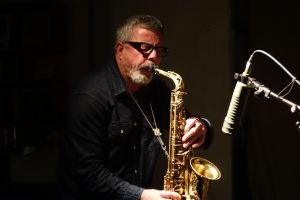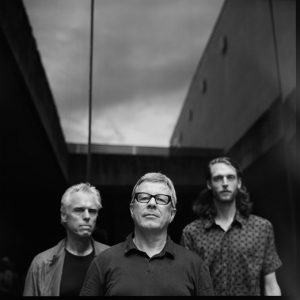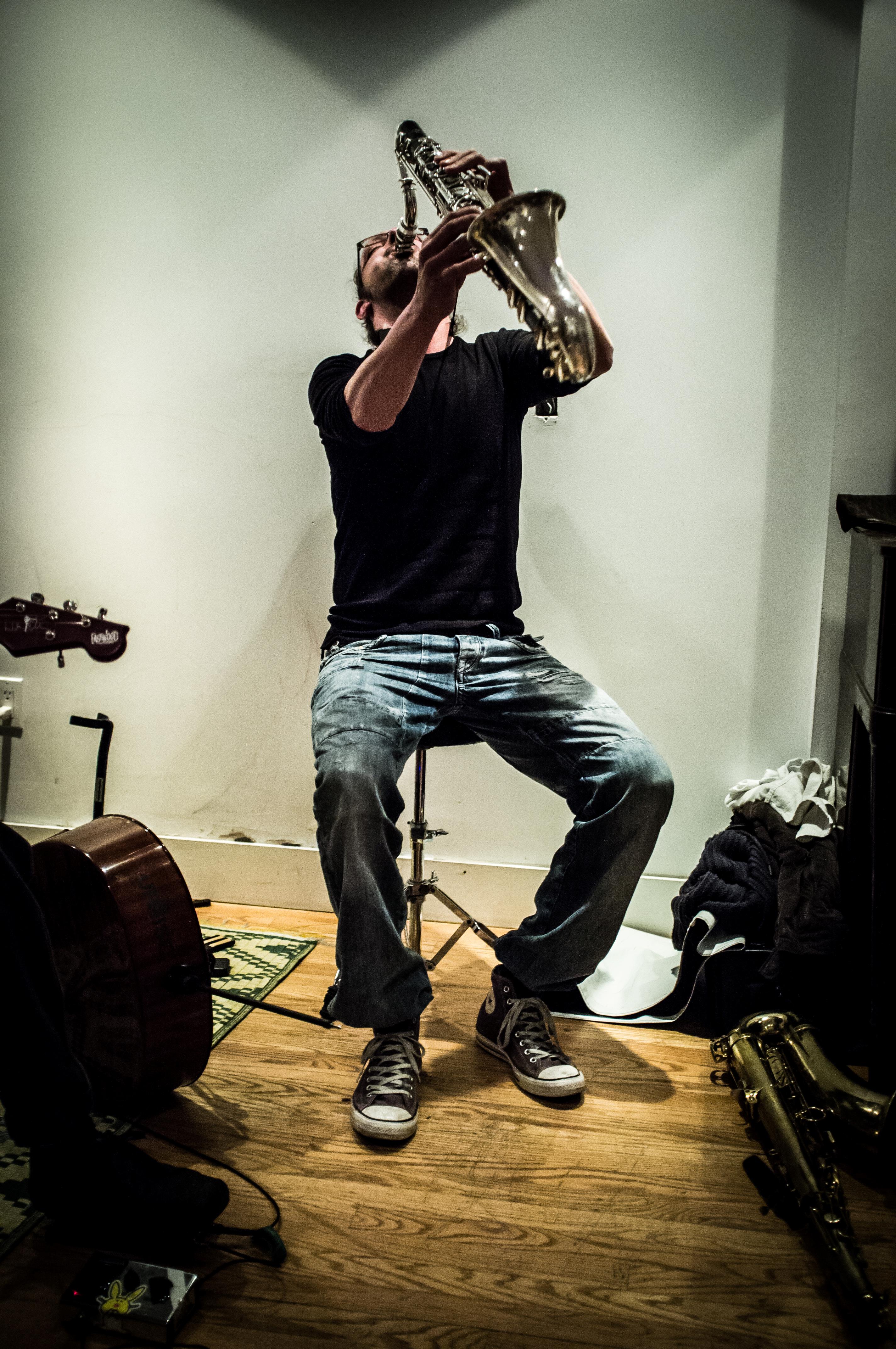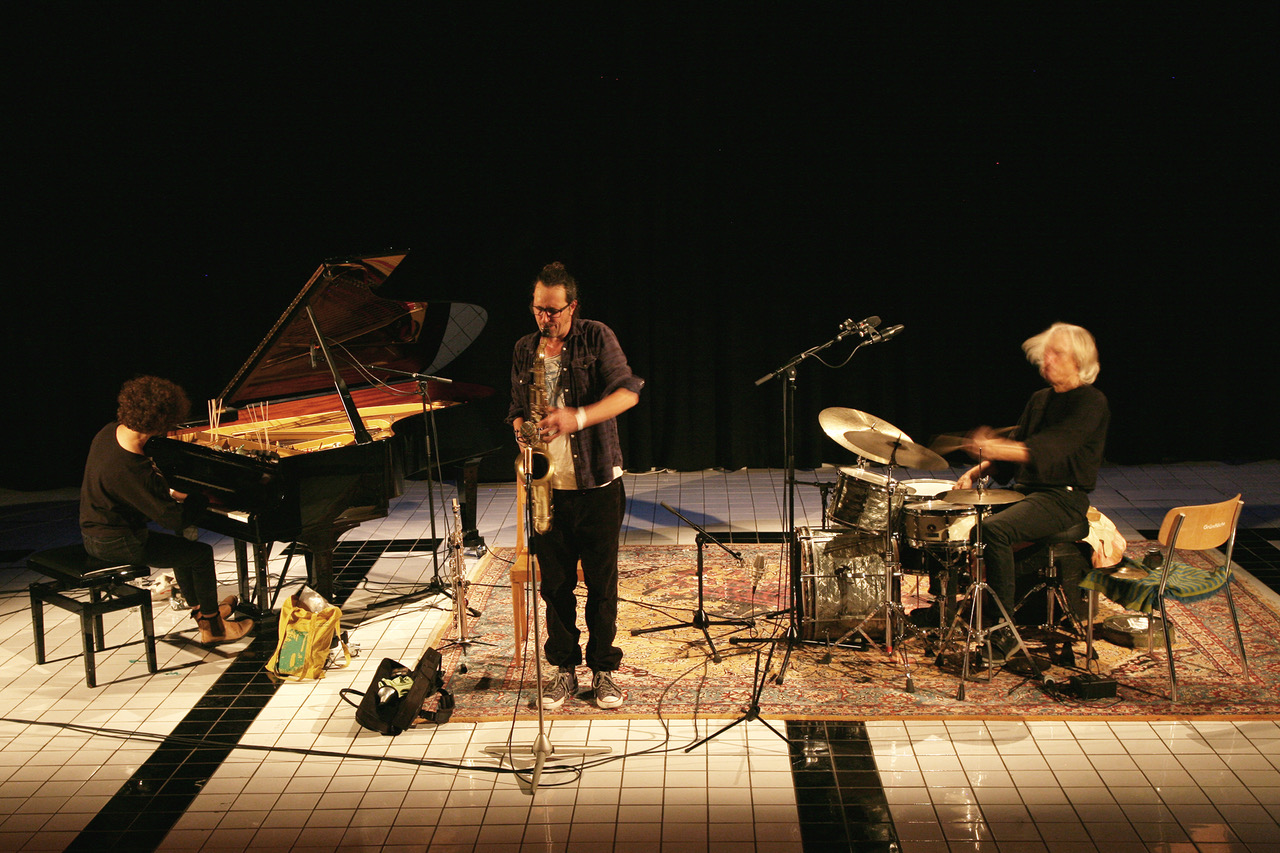Saxophonist, composer and event organiser Christoph Gallio has been shaping the Swiss and international free jazz and new improvisation scene for almost 40 years. In this interview with Friederike Kenneweg, he reveals how he moved from improvisation to composition and what role poetry plays in the process.

Friederike Kenneweg
Young Christoph Gallio (*1957) used his first self-earned money to buy a soprano saxophone and taught himself to play. Even though he later spent a year at the Basel conservatory and at some point even completed a degree, he has remained true to this attitude of self-taught musician who simply does it and finds out how best to do it – as an improvising musician in free jazz, among other things, as a composer, as an organiser and as the operator of the PERCASO label.
Looking for new impulses
In order to develop further on his unconventional path, Christoph Gallio has always looked for new stimuli on the outside.
“It’s the crux of the self-taught artist, at some point one has to do something new. I can’t always be alone with my idiosyncrasies. I always need new inputs.”
After his time as a saxophonist in the Swiss jazz scene and after musical encounters with greats such as Irène Schweitzer or Urs Voerkel, for example, a change was needed.
From improvisation to composition
“I always and only improvised freely, going into free jazz to some extent. But at some point that no longer satisfied me, as there was this danger to go round in circles, without getting any further and only ever come up with the same things.” In contrast to the many irretrievable moments of improvised music, Gallio wanted to create something that could be repeated – and began composing. At first, he mainly wrote for his own band projects, such as the trio Day&Taxi, which has been with him for 35 years. Over time, commissioned works for other artists were added.

On Day&Taxi‘s 2019 album Devotion, poems by Friederike Mayröcker served as a source of inspiration for Christoph Gallio, with bassist Silvan Jeger taking on the vocal part.
Merging miniatures into a whole
Christoph Gallio prefers to use texts as starting point for his music – especially poetry, for example by Robert Filliou or Gertrude Stein.
“If I have a text as a basis, it just works. Without a text, it’s much more difficult for me to compose.”
In the piece The Ocarina Chapter for string trio and voice, which the Mondrian Ensemble premiered with baritone Robin Adams in June 2022, one characteristic of Gallio’s music is particularly evident: his work with miniatures. These arise from his preference for short, lyrical, often humorous texts, which inspire his compositions.
“What I like about small pieces is the seemingly unimportant, the everyday. Why not do funny things too, why not bring humour into the music, why is most music so strict and serious, why do certain people who make music take themselves so seriously?”
In The Ocarina Chapter (2021), Christoph Gallio brings together poems by Annina Luzie Schmid (*1983), Markus Stegmann (*1962) and Peter Z Herzog (*1950).
Each miniature is a picture in its own right
In The Ocarina Chapter, thirty miniatures, some purely instrumental, others with words set to music, are put together in a sequence of almost forty minutes. The rapid changes this requires are a particular challenge for the performers.
“The musicians have to practise a lot with these miniatures. Each one being a picture in its own right. One has to be sung one way, the next differently, there has to be shouting, then whispering, without much transition time in between.”
Freedom for interpreters
Christoph Gallio finds the right sequence for the individual sections by putting the pre-sketched miniatures together differently on the computer until everything sounds right. The space between the individual parts is also important in order to create the desired effect. Particularly in those places, Gallio does not dictate everything to the performers of his pieces for the performance, but leaves the exact arrangement up to them.
At the premiere of The Ocarina Chapter, violinist Ivana Pristašová specified the length of the pause between the sections. “Ivana simply conducted it and made decisions about how long the ensemble should wait and when it should continue, showing the right instinct.”
The volume levels are not notated in the composition either; the ensemble had to make its own decisions about the piece’s dynamics.
“I want to give the musicians a lot of freedom in the hope that they will enjoy the piece. This works fully when they realise to have the freedom and the opportunity to work it out the way they please.”
Needless to say, Christoph Gallio takes the same kind of freedom for himself again and again on his journey.
Friederike Kenneweg
Robin Adams, DAY&TAXI, Silvan Jeger, Gerry Hemingway, PERCASO, Ivana Pristašová, Irène Schweitzer, Urs Voerkel, Annina Luzie Schmid, Markus Stegmann, Friederike Mayröcker
neo-profile:
Christoph Gallio, Petra Ackermann, Karolina Öhman, Mondrian Ensemble



